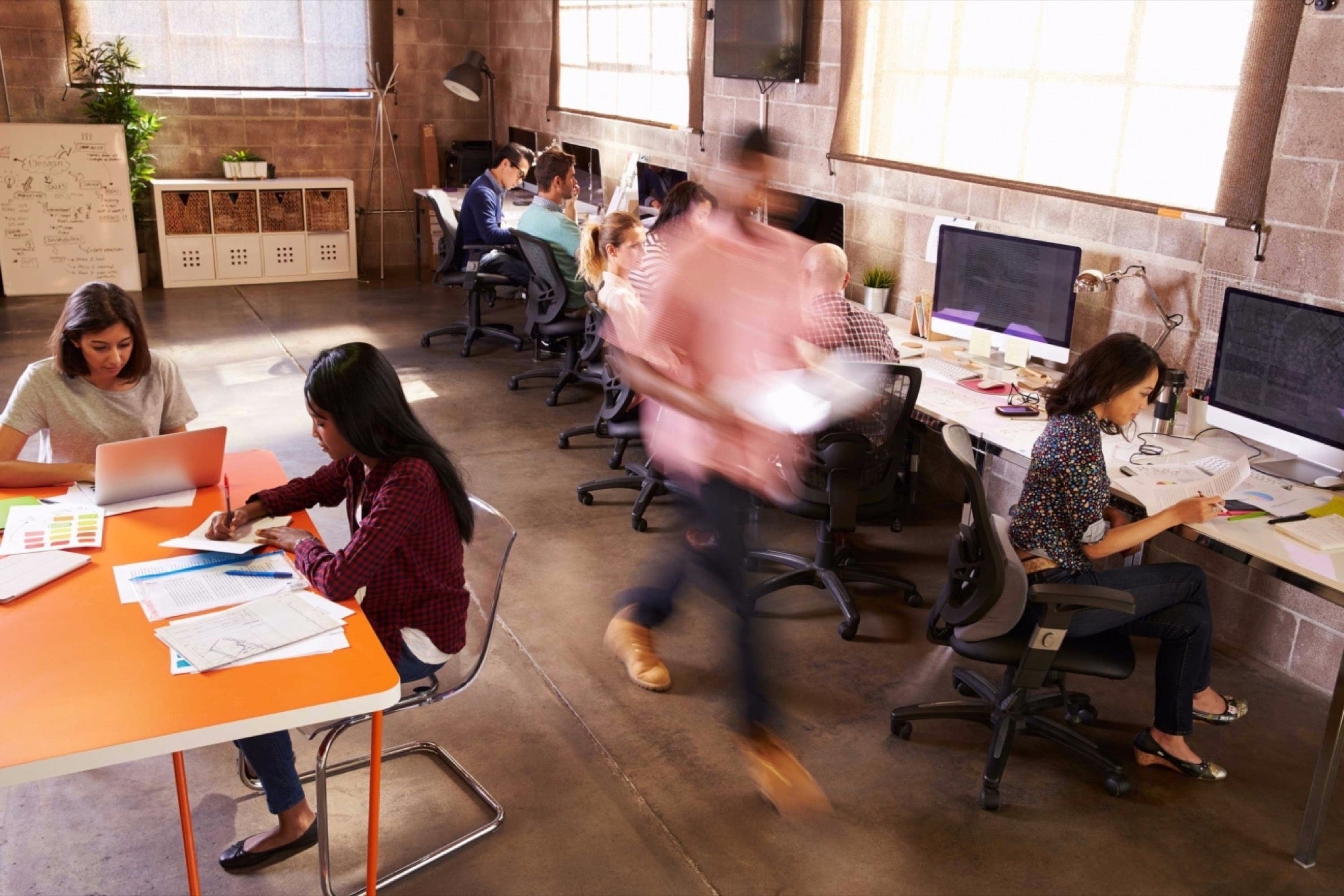Six Tips To Update Your Workspace For The Office Renaissance When designing spaces for today's employee, the best result is human-centered, a workplace crafted to mentally excite and engage, physically comfort and emotionally support busy workers.
By John Small
Opinions expressed by Entrepreneur contributors are their own.
You're reading Entrepreneur Middle East, an international franchise of Entrepreneur Media.

Take a moment and describe what comes to mind when you think of a modern room. Your brain may conjure up images of thin, sleek furniture, and minimalist decor. Now, instead of thinking about the room, turn your thoughts to the modern man or modern woman. He or she may be rushing to the next meeting, all while preparing mental talking points, answering a text message and having a "casual" yet critical off-line conversation with a co-worker. Is your image of a modern room supporting the modern worker?
When designing spaces for today's employee, the best result is human-centered, a workplace crafted to mentally excite and engage, physically comfort and emotionally support busy workers. Mobile technologies promised workers the ability to be productive on the go. But it's not enough. Needs for collaboration, team building and individual focus are just a few of the reasons employees are coming back to the office. The elevated importance of the workplace is creating an office renaissance.
As employees return to the office, the workspaces of yesterday won't meet the needs of today. The spaces for the new office need to combine an updated look with an authentic employee. Beautiful spaces are only worth investing in if they are also productive.
The Steelcase Design Studio considered the entirety of the person when putting together the below tips for modernizing your workspace. Emotionally, how people feel in the space, was considered important along with employees' physical health and people's ability to focus and solve problems. With a view of workers' holistic wellbeing, Steelcase's team of designers created six suggestions for how to update your workplace for the office renaissance:
1. Democratize the space Similar to a healthy ecosystem in nature that is bio-diverse, create a range of spaces that support different types of work that people can choose to work from, regardless of where they fit within the organization's hierarchy. Large team meetings, small group conversations and private moments to focus all support the modern worker's needs.
Related: Office Interiors Say A Lot About Your Corporate Culture
2. Support multiple postures and movement Incorporate spaces that allow people to work in whatever posture works for them– lounging, standing, perching, walking or sitting upright.
3. Take cues from nature More than just adding plants -which is important– seek variation over uniformity. Incorporate naturally complex materials, lots of different shapes, forms, patterns and textures.
4. Embed performance The most inviting and inspiring spaces need to help people make meaningful progress on their work. Integrate technology that makes it easier for people to collaborate, that encourages movement and makes it easier to get into focus. Help people find their favorite places to get work done and provide a feedback loop to the organization about what spaces work.
5. Add needed privacy Balance the desire for openness with the human need for solitude. Create spaces that support focused work as well as rejuvenation.
6. Promote personalization Create spaces that feel bespoke to the organization and the individual. Prioritize self-expression and authenticity over perfection.
Modernizing the workplace doesn't need to feel intimidating or overwhelming. By keeping the holistic wellbeing of people in mind, your workplace can be at the forefront of the office renaissance, becoming a place where everyone wants to be.
Related: The Perfect Match: Finding The Ideal Office Space In Dubai













